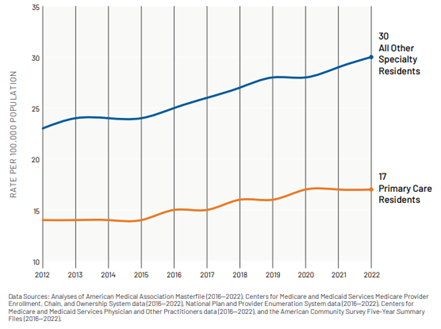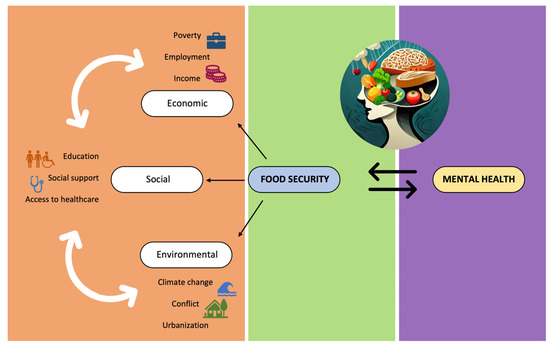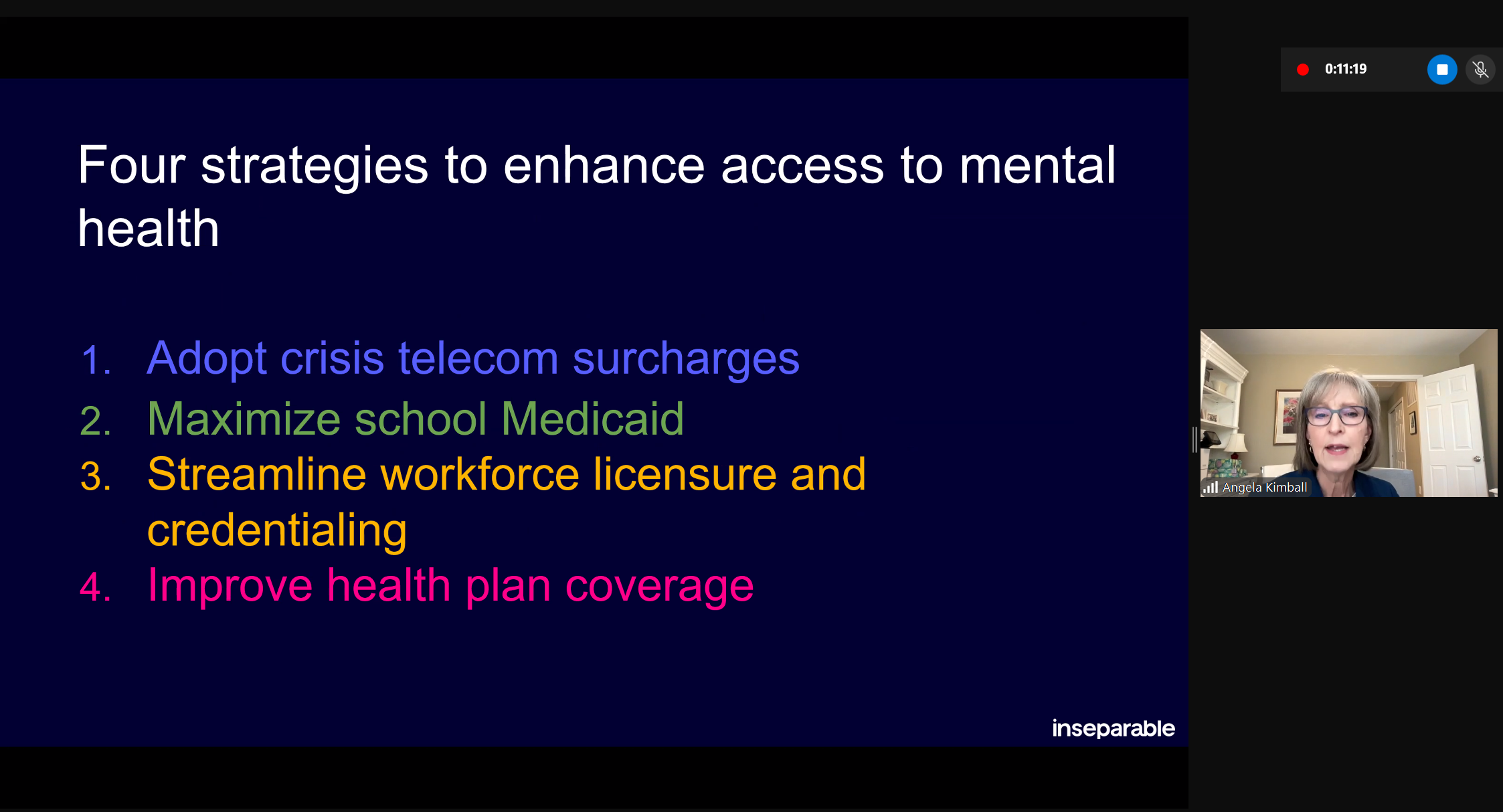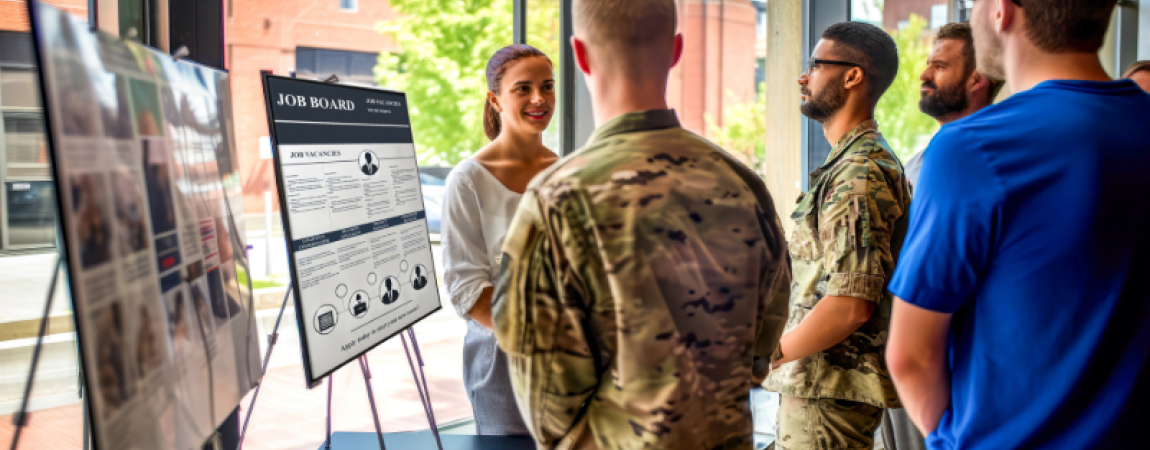Secretary of Commerce Gina Raimondo moderated a conversation on increasing broadband access, expanding student digital literacy, and preparing the future workforce with CEOs Corie Barry of Best Buy, Beth Ford of Land O’Lakes, and Julie Sweet of Accenture.
By Seth Gerson and Catherine Van Ness
Following Governor Hutchinson’s opening remarks, at NGA’s 2022 Winter Meeting, former Governor of Rhode Island and current U.S. Secretary of Commerce Gina Raimondo moderated a conversation on increasing broadband access, expanding student digital literacy, and preparing the future workforce with CEOs Corie Barry of Best Buy, Beth Ford of Land O’Lakes, and Julie Sweet of Accenture.
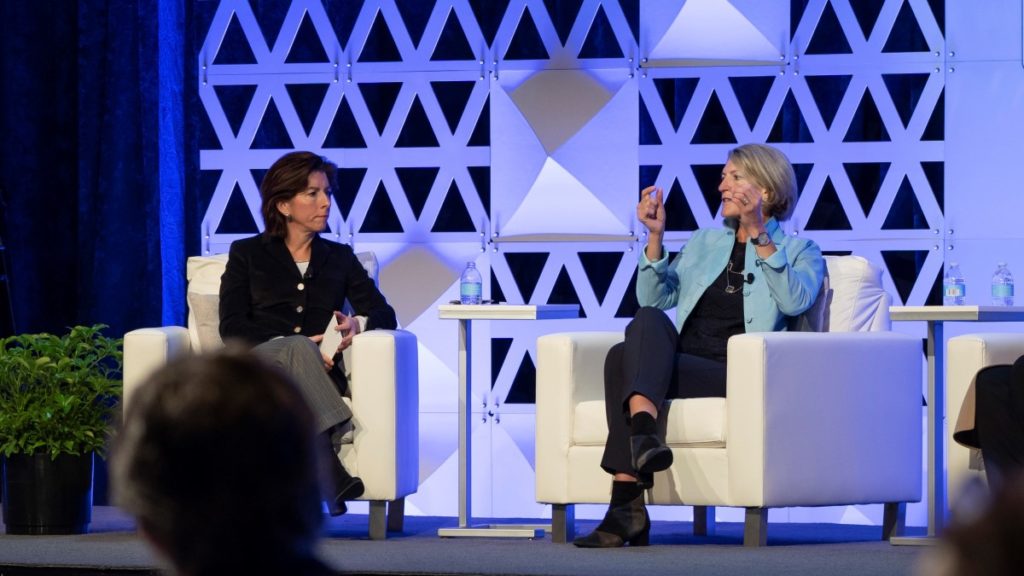
Secretary Raimondo began by noting that computer science education is a bipartisan issue and that it’s about closing the digital divide and the opportunity divide for young people. The Secretary also highlighted the new bipartisan federal Infrastructure Investment and Jobs Act and the $65 billion in funding for broadband, including a flexible Digital Equity Initiative to allow for Governors to provide fiber and fixed wireless solutions as well as digital literacy training, computers, and hardware. She noted that 50 percent of Americans on tribal lands and one-third of Americans in rural areas do not have access to broadband and that the intent of the law is to address these disparities and improve affordability.
Beth Ford then spoke about the importance of broadband for family-owned farms and rural communities and how technology and broadband access can accelerate education and employment opportunities in these areas. To address these challenges, Ford noted Land O’Lakes leadership on the American Connection Project, a coalition of 175 organizations aimed at closing the digital divide in rural and underserved areas. She also recommended that Governors explore creating a state-level Office of Broadband and highlighted Land O’Lakes American Connection Corps fellowship program.
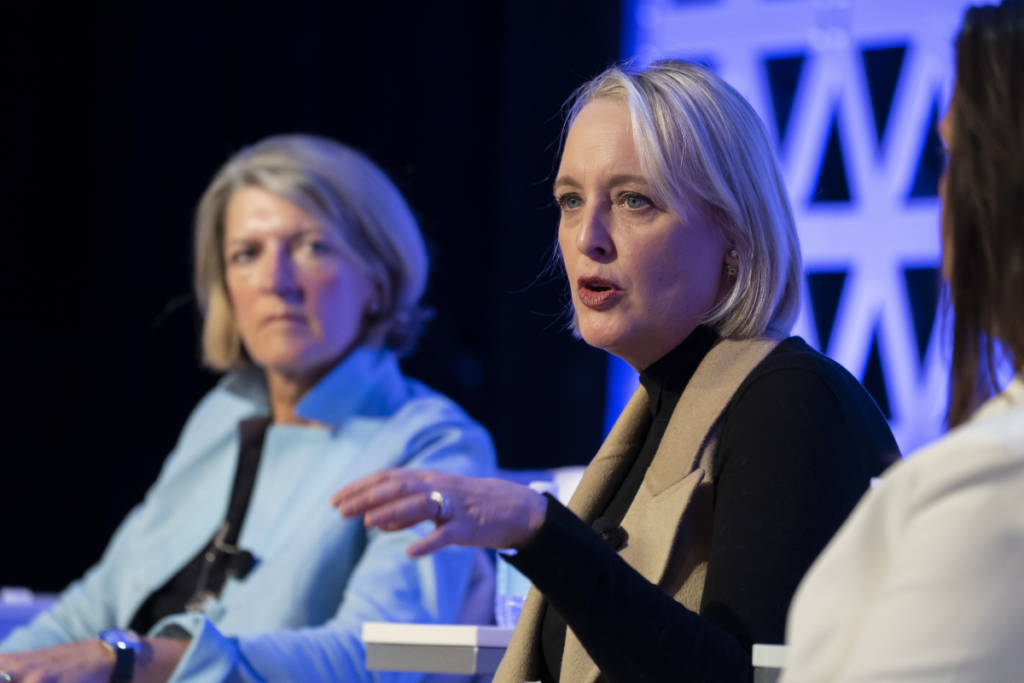
Julie Sweet followed by providing insights on how the workplace has been impacted by the pandemic. Sweet noted that the accelerated shift to remote work has increased the need for broadband and digital literacy skills. She highlighted that from the moment you apply to Accenture through onboarding and on-the-job, employees need to be digitally literate. Sweet also noted that K-12 computer science education is critical for providing young people entering a digital economy with the foundational skills to succeed in today’s workplace.
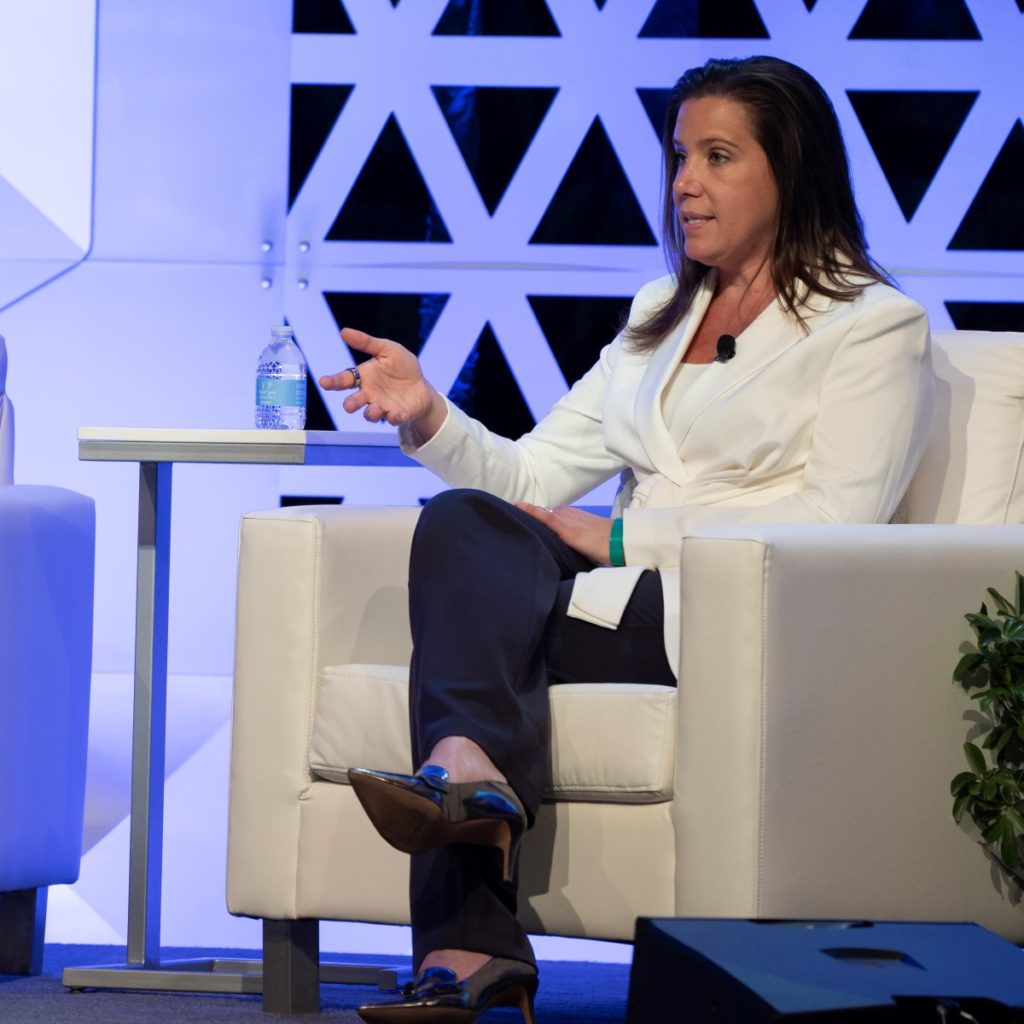
Corie Barry spoke about the efforts of Best Buy through its Teen Tech Centers to strengthen digital literacy skills by providing afterschool opportunities for students in disadvantaged communities. Barry noted that the program also provides mentoring, mental health, and wellness supports for students and is tailored to the workforce needs of local communities. Sweet then provided an overview of the Accenture Apprenticeship Program and how Accenture uses student access to K-12 computer science education as a criteria for evaluating locations for new apprenticeship opportunities. She also emphasized the importance of embedding creativity, problem-solving, and adaptability into K-12 computer science curriculum given the fast-evolving nature of technology and also ensuring that computer science programs are intentionally designed with diversity as a focus.
Barry then stated that diversity is good for business and highlighted the importance of creating a diverse, digitally trained workforce across the country. To build a diverse, digitally trained workforce, Barry outlined four key principles: (1) start in the early stages of a student’s education; (2) provide mentorship opportunities; (3) partner with local community organizations to provide students with exposure to career pathways; and (4) develop personalized plans based on each student’s career goals and aspirations.
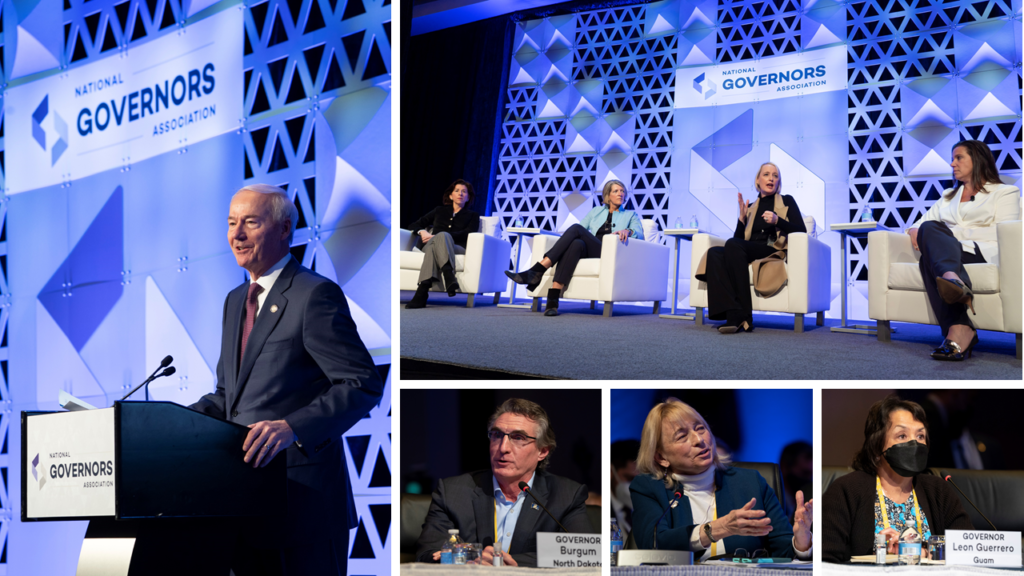
Secretary Raimondo then turned to Governors for questions and comments. Governor Leon Guerrero spoke about how she has used federal funding from the American Rescue Plan and the Elementary and Secondary School Emergency Relief (ESSER) Fund to increase student access to devices and broadband. She echoed the importance of providing students with greater opportunities to access computer science education. Governor Burgum highlighted North Dakota’s efforts on broadband and building a cybersecurity workforce. Governor Mills spoke about Maine’s efforts to prepare and provide professional learning to increase the digital literacy of teachers.
Governor Hutchinson closed by asking Governors to sign on to an NGA Chairman’s Initiative Compact committing to expand access to computer science education in their states and territories. The final Compact will be presented with Governor signatures at the Summer Meeting. Please check back for ongoing updates on the Initiative at https://www.nga.org/computerscience/.



